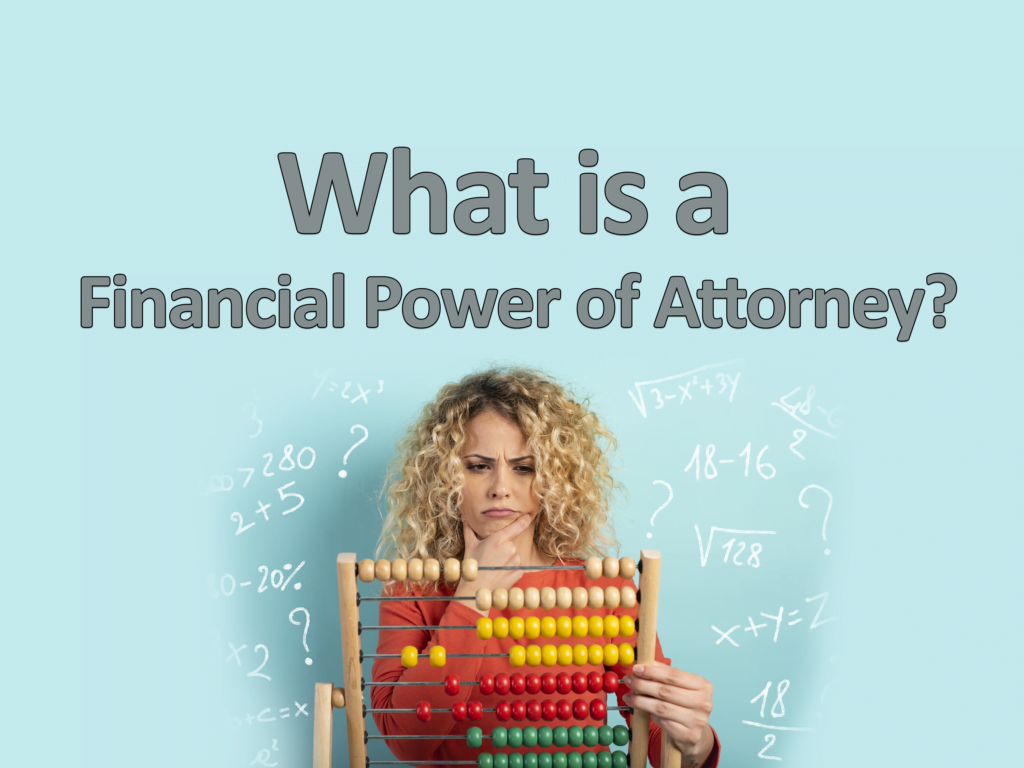
What is a Financial Power of Attorney?
Financial Power of Attorney
So what is a Financial Power of Attorney? In estate planning, A Durable Financial Power of Attorney is a legal document that lets you appoint someone to handle your finances on your behalf at a specific point in time or under a specific situation such as if you become incapacitated. The person you name in your Financial Power of Attorney to make financial decisions for you is referred to as your agent or attorney-in-fact. The financial agent you appoint can conduct a variety of tasks include paying bills, managing investments and making bank deposits or withdrawals.
There are different types of Power of Attorney legal documents. In estate planning, most people choose to make their Financial Power of Attorney, a Durable Financial Power of Attorney. The term Durable means your financial agent’s authority to act on your behalf remains active even if you should become incapacitated. This lets you select someone to look after your finances and property if you are ever suddenly unable to do so.
A Durable Financial Power of Attorney is similar to an Advance Healthcare Directive in many ways. One never know when something unexpected could happen, so it makes sense to have a plan in place for when something does. It is important to select an agent that you trust and whom you are confident can handle the responsibilities of managing your finances, should you become unable to do so. People will often select a trusted family member to act as their agent, but it can also be a professional such as a CPA.
So what does incapacitated mean, and when does a Durable Financial Power of Attorney go into effect? Incapacitated means, that you are unable to take actions on your own behalf or you are no longer of sound mind. Some examples of incapacitation may include having a severe stroke an no longer being able to communicate, a car accident that leaves you in an unconscious state, an accident that causes significant brain trauma, later stages of Alzheimer’s or dementia.
